C#调用C动态链接库
前言
? ? ? ? 已经没写过博客好几年了,上一篇还是1年半前写的LTE?Gold序列学习笔记,因为工作是做通信协议的,然后因为大学时没好好学习专业课,现在理论还不扎实,不敢瞎写;
? ? ? ? 因为工作原因,经常需要分析一些字节流数据,所以基本都是用C写的,结果输出在命令行,或者txt/csv文件;但个人还是喜欢输出到GUI界面,可选的手段就MFC、WinForm、PyQt:
? ? ? ? MFC的话感觉多少有点过时了,所以用WinForm,PyQt的多点,尤其是WinForm很方便;前段时间用WinForm写了个日志分析工具,因为本人是业余的C#使用者,所以写的很痛苦,至于数据处理的核心思想就CSDN上的结构体字节流的相互处理,数据处理部分大概1000来行;但工作中用的结构体通常很大,涉及大小端转换,同时还有位域,处理起来很麻烦,用C的话就很方便,所以用C处理数据用WinForm、PyQt显示的方法比较方便;所以就想着用C处理玩数据保存到txt/csv文件,然后用C#/Python去调用C应用并读取文件,但感觉有点low;所以就打算把C部分的处理输出成dll文件,然后用C#/Python去调用DLL;当然对我的需求来说,把所有数据封装到1个结构体里面,每个结构体字段是Uint或者Uint数组即可;以下部分实现就仅仅是能用即可,没具体设置;
C语言部分-编译生成动态链接库
? ? ? ? 我办公电脑上是VS2015,自己电脑是VS2017,创建工程有点差异;
VS2015工程设置使用CSDN上面的截图,注意源文件后缀用默认的cpp,不要用c,我还没去学习这块的细节,反正能用就行
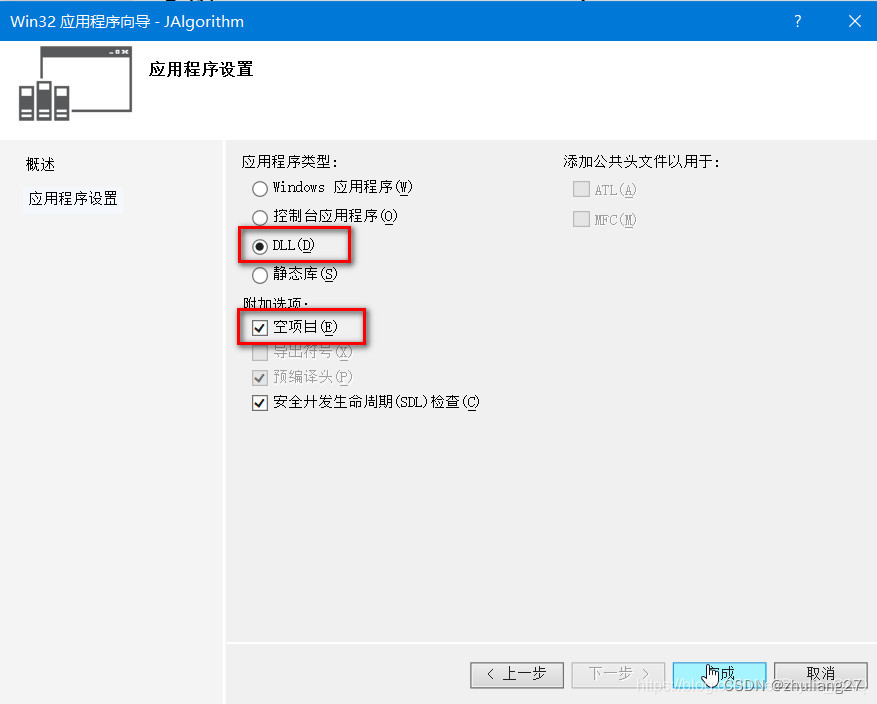
VS2017生成控制台应用程序后,需要将如下红框中的配置类型修改为动态库;
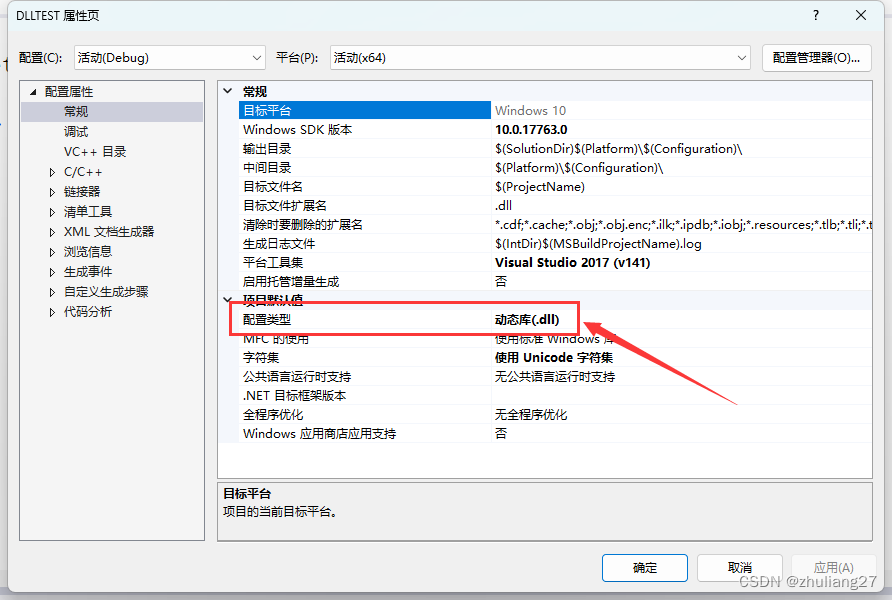
然后代码和C应用程序的差异的话就在函数声明或定义前加上
extern "C" _declspec(dllexport) int add_test(int x, int y);不设置配置和平台的话,默认输出就在Debug路径下生成和项目名一样的DLL文件,如下图:
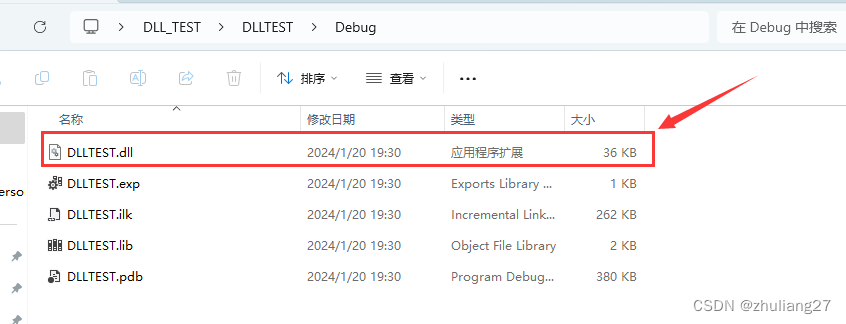
C#部分-使用动态链接库
? ? ? ? 把编译生成的DLL文件放到C#编译输出的路径下,不配置的话就在如下路径:
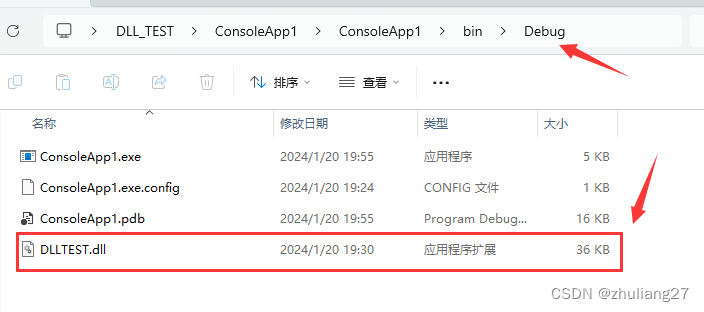
在C#中调用C的话,核心代码就如下2行,
[DllImport("DLLTEST.dll",CallingConvention=CallingConvention.Cdecl)]
extern static int add_test(int x, int y);还有需要注意的点,需要包含如下引用,当然写了如上第一行就会提示让包含了:
using System.Runtime.InteropServices;感觉像是函数外部声明,能用就行,暂时没有去深究原理啥的,输出如下:
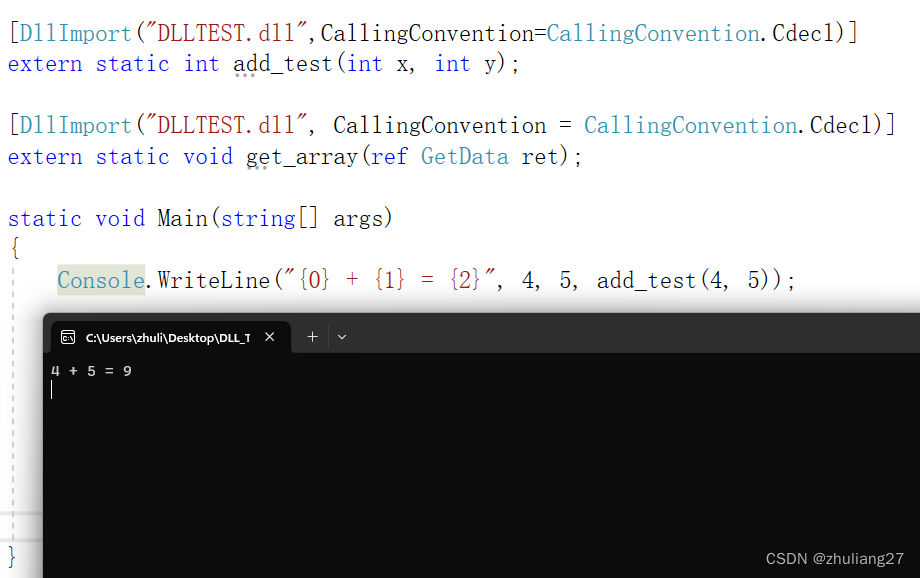
因为需要处理的数据通常比较多,所以就定义一个结构体,把需要传输的数据全放里面,然后用1个接口就读过去了;
简单做个测试
- C程序定义一个结构体,结构体里面仅包含一个字段,字段是一个Uint类型的数组:
typedef struct
{
unsigned int data[32];
}RetData;- C程序输出结构体数据测试:
void get_array(RetData* ret)
{
for (int idx = 0; idx < 32; idx++)
{
ret->data[idx] = idx * 10;
}
}- C#程序也定义一个结构体,结构体包含一个字段,字段是Uint32类型的数组:
struct GetData
{
[MarshalAs(UnmanagedType.ByValArray,SizeConst =32)]
public UInt32[] data;
}-
C#程序读入结构体数据测试,可能用法很不专业,能读出来就行
/* 函数外部声明 */
[DllImport("DLLTEST.dll", CallingConvention = CallingConvention.Cdecl)]
extern static void get_array(ref GetData ret);
/* 在Main函数中调用 */
GetData getData = new GetData();
get_array(ref getData);- 输出
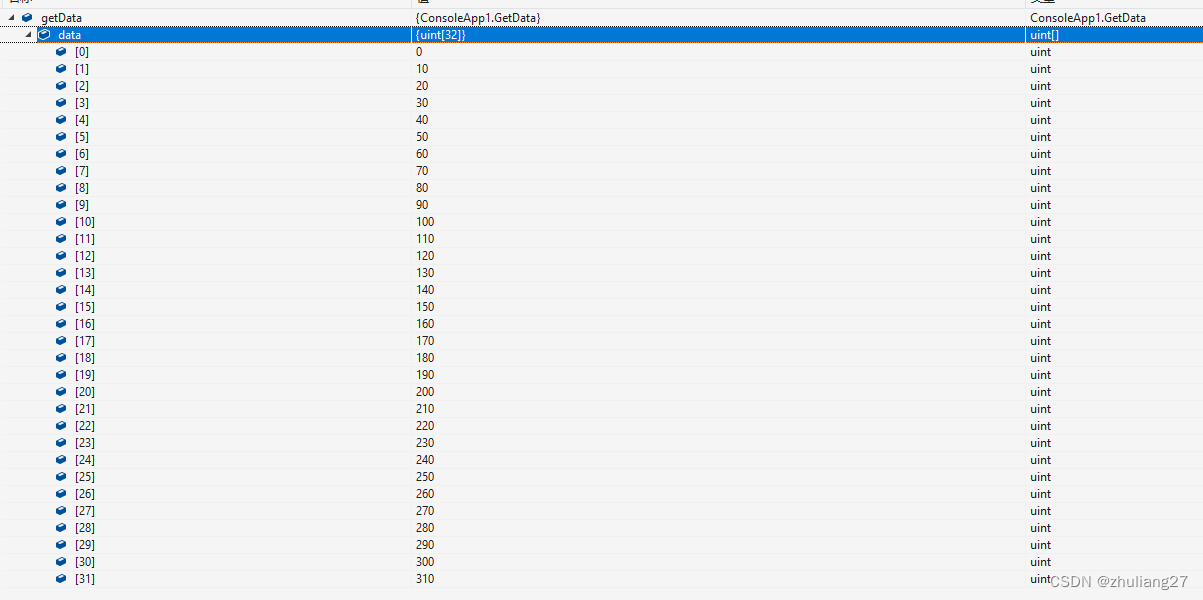
? ? ? ? 今天下午在公司写了个维测工具,整个流程和上面测试步骤一致,能正常使用
Python部分-使用动态链接库
? ? ? ? 把编译生成的DLL文件放到Python文件同级路径下,这样在Python代码中就直接使用DLL文件名即可,Python测试代码如下,调用数组那块先前在公司测试正常能用来自,忘了,懒得写了
import ctypes
dll = ctypes.windll.LoadLibrary('DLLTEST.dll')
print(dll.add_test(4, 5))
输出5:如下图:
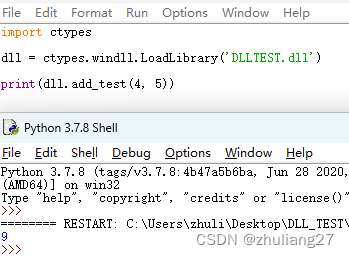
本来打算把整个工程打包放到CSDN来着,但免费的话审核不通过,所以就把C/C#部分代码都贴下面了:
C程序头文件
#pragma once
#ifndef DLL_TEST_H
#define DLL_TEST_H
typedef struct
{
unsigned int data[32];
}RetData;
extern "C" _declspec(dllexport) int add_test(int x, int y);
extern "C" _declspec(dllexport) void get_array(RetData* ret);
#endif // !DLL_TEST_H
C程序源文件
#include <stdio.h>
#include <stdlib.h>
#include "dll_test.h"
int add_test(int x, int y)
{
return x + y;
}
void get_array(RetData* ret)
{
for (int idx = 0; idx < 32; idx++)
{
ret->data[idx] = idx * 10;
}
}C#程序
using System;
using System.Collections.Generic;
using System.Linq;
using System.Runtime.InteropServices;
using System.Text;
using System.Threading.Tasks;
namespace ConsoleApp1
{
struct GetData
{
[MarshalAs(UnmanagedType.ByValArray,SizeConst =32)]
public UInt32[] data;
}
class Program
{
[DllImport("DLLTEST.dll",CallingConvention=CallingConvention.Cdecl)]
extern static int add_test(int x, int y);
[DllImport("DLLTEST.dll", CallingConvention = CallingConvention.Cdecl)]
extern static void get_array(ref GetData ret);
static void Main(string[] args)
{
Console.WriteLine("{0} + {1} = {2}", 4, 5, add_test(4, 5));
GetData getData = new GetData();
get_array(ref getData);
Console.ReadLine();
}
}
}本文来自互联网用户投稿,该文观点仅代表作者本人,不代表本站立场。本站仅提供信息存储空间服务,不拥有所有权,不承担相关法律责任。 如若内容造成侵权/违法违规/事实不符,请联系我的编程经验分享网邮箱:chenni525@qq.com进行投诉反馈,一经查实,立即删除!
- Python教程
- 深入理解 MySQL 中的 HAVING 关键字和聚合函数
- Qt之QChar编码(1)
- MyBatis入门基础篇
- 用Python脚本实现FFmpeg批量转换
- via 学生行为扩展模块 SCB5制作过程
- Android共享元素动画
- 使用字符串形式的 Refs
- 如何通过多媒体互动技术让汽车展厅设计更胜一筹?
- 了解 Node.js 的运行机制:从事件循环到模块系统(下)
- Python Django Suit:构建现代化的Django后台管理
- Go 语言接口
- 由于没有远程桌面授权服务器可以提供许可证,远程回话连接已断开,请跟服务器管理员联系。
- CompletableFuture的深入浅出
- Python生成器 (Generators in Python)